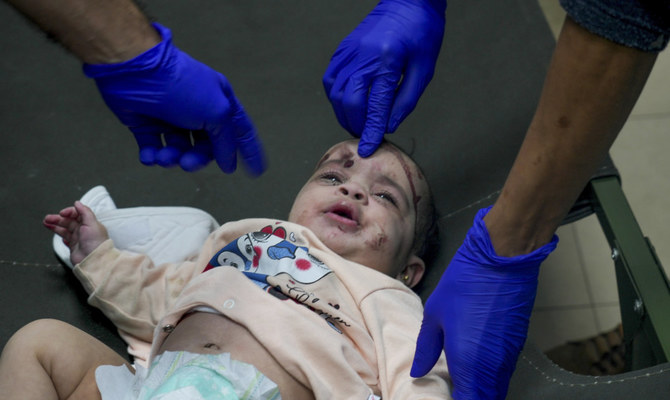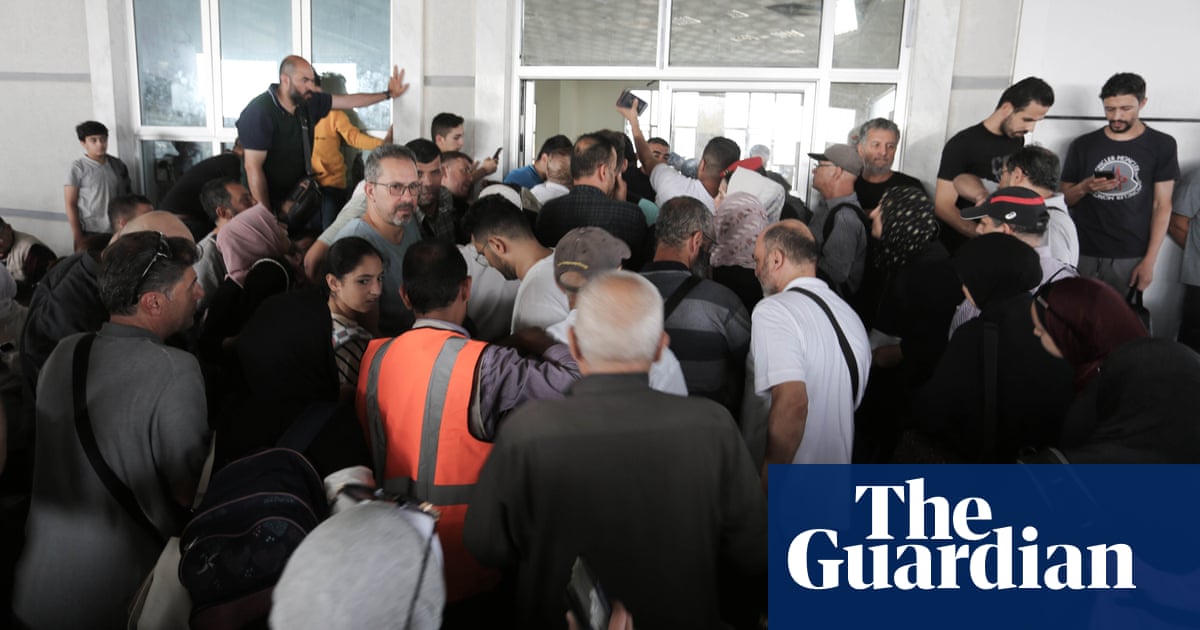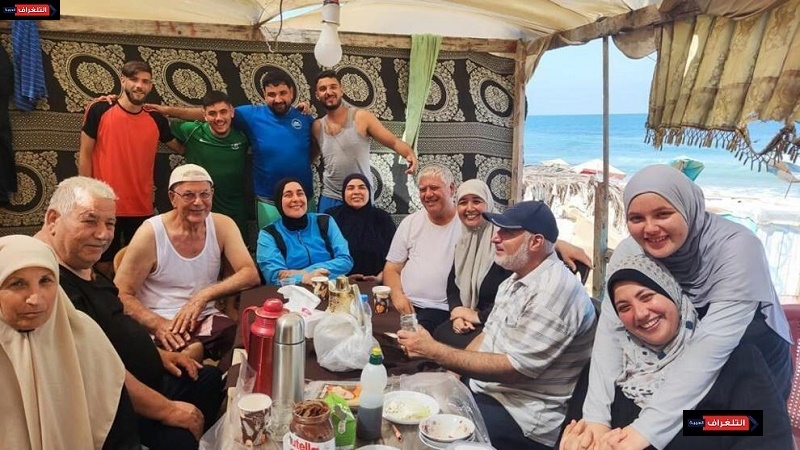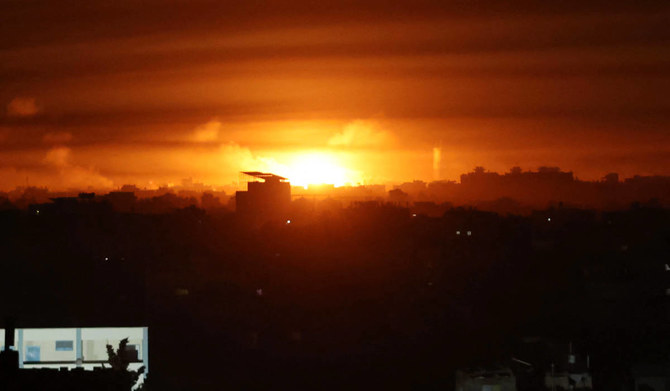
Plight further complicated due to sporadic aid deliveries, hobbled by Israeli restrictions
DEIR AL-BALAH: Zainab Al-Zein was forced to make a desperate decision: feed her infant daughter solid foods that her tiny body may not be able to digest or watch her starve because of a lack of baby formula in the besieged Gaza Strip.
Al-Zein chose to give two-and-a-half-month-old Linda solids, knowing the choice could lead to health issues. “I know we are doing something harmful to her, but there is nothing,” said Al-Zein, feeding her wailing daughter crushed biscuits in the cold tent they now call home. “She cries and cries continuously.”
The war between Israel and Gaza’s Hamas rulers has sparked a humanitarian catastrophe that has brought shortages of the most basic necessities. Some of the hardest-hit are babies, young children and their parents, with diapers and formula either hard to find or spiking to unaffordable prices, leading parents to resort to inadequate or even unsafe alternatives.
Their plight is further complicated due to sporadic aid deliveries that have been hobbled by Israeli restrictions and the relentless fighting.
Displaced Palestinians are also being squeezed into ever tighter areas of the tiny coastal enclave, prompting outbreaks of illness and disease, to which malnourished children are particularly vulnerable. The UN says the population is at imminent risk of famine, with a quarter of people already starving.
For Palestinians enduring increasingly dire conditions, the most basic of acts — such as changing a child’s diaper — have become a luxury that can require sacrifice.
“I sold my children’s food so I can buy diapers,” said Raafat Abu Wardeh, who has two children in diapers.
Aid is not reaching everyone, and shortages of basic goods have caused prices to skyrocket. With Gaza’s economy decimated, few Palestinians have regular incomes and most are either depleting their savings or subsisting on handouts.
At makeshift street stalls, older children working as hawkers sell individual diapers for three to five shekels ($1 to $1.50) or entire packs for up to 170 shekels ($46). A pack of diapers before the war cost 12 shekels ($3.50).
“The prices of diapers are very ridiculous,” said Anis Al-Zein, who was buying them along a street in central Deir Al-Balah and is not related to Zainab. “A child costs you 20 shekels ($5) a day. Especially in a bad situation like this, all prices are high and there is no income for people. There isn’t even aid.”
Some parents are using cloth diapers, but those require washing with water, which is also scarce.
Mohammed Al-Khatib, the local program manager for the UK-based Medical Aid for Palestinians, said some people have been forced to buy smaller diapers and tape them together.
Lack of fresh produce, the proliferation of unregulated food stalls and cold weather has contributed to the spread of illness, including respiratory infections, skin rashes and diarrhea. “It is winter, and the kids are wet most of the time,” Al-Khatib said.
The lack of diapers has added to the poor sanitary conditions for the estimated 1.7 million displaced Palestinians, many of whom are crammed into overcrowded shelters.
The UN children’s agency UNICEF said this week that most of the newly displaced have only 1-2 liters of water a day to drink, cook and wash. It said chronic diarrhea among children was ticking up.
UNICEF says aid deliveries into Gaza are not meeting the vast needs. The agency estimates 20,000 infants up to 6 months old need formula, which UNICEF has been delivering along with necessities that have also included diapers and cash.
“This is far from being enough to address the colossal needs of the children in Gaza,” said UNICEF spokesperson Ammar Ammar.
The needs of infants are part of a broader threat to all 335,000 children in Gaza under five years old, who are at high risk of severe malnutrition and preventable death, UNICEF said.
“For many families in Gaza, the threat of dying from hunger is already real,” Ammar said.
The UN humanitarian office said that recent screenings show that nearly 10 percent of children under the age of five suffer from acute malnutrition, a twelvefold increase from before the war.












